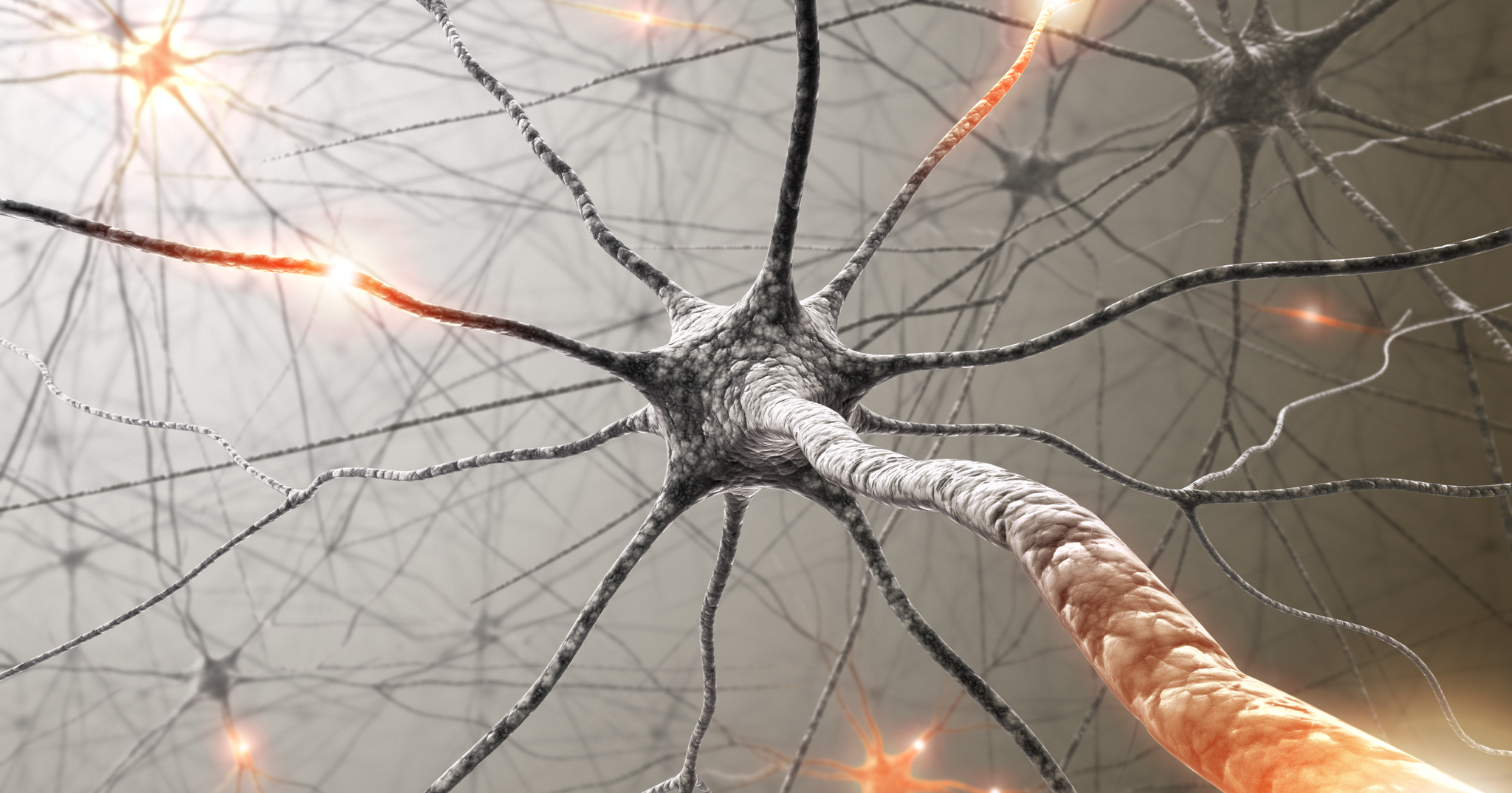Media Coverage
The work done by Northwestern University Feinberg School of Medicine faculty members (and even some students) is regularly highlighted in newspapers, online media outlets and more. Below you’ll find links to articles and videos of Feinberg in the news.
-
CBS News
–
What could have caused Damar Hamlin’s cardiac arrest on the field? Doctors weigh in
Buffalo Bills safety Damar Hamlin remained in critical condition Tuesday after collapsing on the field during a game the night before in Cincinnati. Meanwhile, the speculation persists on what led up to Hamlin suffering cardiac arrest – saying it could have been something called commotio cordis, a disruption of the heart’s rhythm. Dr. Robert Bonow, a cardiologist at the Bluhm Cardiovascular Institute of Northwestern Medicine and professor of cardiology at Northwestern University Feinberg School of Medicine, explained more specifically what a commotio cordis is – and how it could be associated with a hit like Hamlin had just taken.”There’s somewhere between 500 to 1,000 cases that have been reported overall, and so it’s in the ballpark of 20 to 30 cases every year,” he said. “The timing, and the direction, and the position of the trauma is set just right that it can disrupt the cardiac rhythm,” said Bonow. He also explained how rarely a commotio cordis is reported. Bonow said a commotio cordis often occurs in “young individuals hit in the chest where the trauma can be more pronounced.” He also said, “The other possibility in any athlete where there’s a sudden cardiac event is an underlying cardiac condition that’s been previously undiagnosed and the stress of the moment could lead to a cardiac rhythm problem, unrelated to the trauma itself.”
-
Associated Press
–
Explainer: What happened to Damar Hamlin?
Buffalo Bills safety Damar Hamlin suffered a cardiac arrest after making a tackle during Monday night’s game, causing the NFL to suspend a pivotal game against the Cincinnati Bengals that quickly lost significance in the aftermath of a scary scene that unfolded in front of a national television audience. Cardiac specialists say it’s too soon to know what caused Hamlin’s heart to stop, but a rare type of trauma called commotio cordis is among the possible culprits. Commotio cordis occurs when a severe blow to the chest causes the heartbeat to quiver, leading to sudden cardiac arrest. The condition only happens during a rare set of circumstances: when a sharp hit lands directly over the heart “at the exact wrong location at the exact wrong timing” during the heart’s rhythm cycle, said Dr. Rod Passman, director of the center for arrythmia research and professor of cardiology and preventive medicine at Northwestern University’s Feinberg School of Medicine. More than 365,000 people in the U.S. have sudden cardiac arrests in non-hospital settings each year, according to the American Heart Association. Survival depends on quick CPR and shocking the heart back into a normal rhythm, as reportedly happened with Hamlin.
-
NBC 5 Chicago
–
‘Perfect Storm’: Cardiologist Examines What Happened to Damar Hamlin
Damar Hamlin suffered a “cardiac arrest” during the Buffalo Bills’ game against the Cincinnati Bengals Monday night, leaving many questioning: what caused a 24-year-old healthy athlete to suddenly collapse on the field? “From watching the events of last evening, some cardiologists may suspect a rare condition known as commotio cordis, which is a sudden strike to the chest and heart that can cause the patient to lose consciousness,” said Dr. Kannan Mutharasan, associate professor of cardiology at Northwestern University Feinberg School of Medicine and co-director of Northwestern Medicine’s sports cardiology program. “That is a rare condition that can happen in any contact sport. It’s not something you can screen, we don’t know the risk factors but do know the consequences. It is a very unfortunate occurrence.” One of the more common causes likely would have been detected already – a condition known as hypertrophic cardiomyopathy, which is a disease in which the heart muscle becomes thickened. Northwestern Medicine said while HCM is common, it can be “underdiagnosed and associated with sudden death in younger athletes.” It’s important to note that while Hamlin suffered cardiac arrest, that is not the same as a heart attack. Although a heart attack and cardiac arrest both involve a destabilization of the heart, and they may look similar to a lay person, they are very different and should be treated differently, according to the American Heart Association. A heart attack occurs when the blood flow to the heart is blocked, often due to a blockage in a coronary artery. A heart attack often occurs alongside chest pain. Cardiac arrest, however, occurs when there is a sudden disruption to the electrical malfunction in the heart, which causes the heart to be unable to pump oxygen to the brain, lungs and other parts of the body. A person experiencing sudden cardiac arrest will collapse and not have a pulse. In Hamlin’s case, many experts are crediting health care staff who immediately performed CPR with potentially saving the player’s life.
-
ABC News
–
6 months after overturning Roe v. Ade, what abortion access looks lik across the country
The abortion landscape of the United States has changed drastically since Roe v. Wade was overturned by the Supreme Court six months ago. Some states either had so-called trigger laws go into effect or laws that pre-dated Roe that were enforced following the court’s decision. Meanwhile, some other states enacted laws that strengthened abortion rights or rejected ballot initiatives that would have further restricted access to the procedure. “Both those legal changes happened, and we went to this patchwork,” said Katie Watson, an associate professor of medical social sciences, medical education and obstetrics and gynecology at Northwestern University Feinberg School of Medicine. “And states took different positions and it’s still in flux six months later.” Since Roe was overturned, at least 14 states have nearly ceased all abortion services. While many states enacted abortion restrictions following the overturning of Roe v. Wade, multiple states adopted protections for and committed funding to abortion access.
-
ABC 7 Chicago
–
Diane Pathieu’s husband shares his brain cancer survival story thanks to cutting-edge tech
Diane Pathieu went to Northwestern Medicine to meet with her husband’s now neuro-oncologist, Dr. Rimas Lukas. “In Nick’s case, he had a lot of exciting things from a genetic perspective, one of them was the presence of something called the FGFR TAC3 fusion,” Dr. Lukas said. “This for us is exciting because it has potential target, so there are drugs available which we can use.” Doctors performed cutting-edge technology called methylation profiling inside a lab where ABC7 got an exclusive look to try and grasp what this could mean for patients that feel hopeless. “Methylation profiling is taking the genetic fingerprint of the tumor,” said Dr. Craig Horbinski, chief of neuropathology at Northwestern Medicine and professor of pathology at Northwestern University Feinberg School of Medicine. “We can more clearly identify exactly what kind of tumor it is that will inform on the patient’s ultimate prognosis, as well as any clinical trials that the patient might be a candidate for. “Northwestern Medicine is one of only a half dozen institutes across the country doing this type of testing routinely, and the only one in Illinois.
-
Yahoo! News
–
New label law has unintended effect: Sesame in more foods
A new federal law requiring that sesame be listed as an allergen on food labels is having unintended consequences – increasing the number of products with the ingredient. The new law, which goes into effect January 1, requires that all foods sold in the US must be labeled if they contain sesame, which is now the nation’s ninth major allergen. More than 1.6 million people in the U.S. are allergic to sesame, some so severe that they need injections of epinephrine, a drug used to treat life-threatening reactions. Cases of sesame allergy have been rising in recent years along with a growing number of foods that contain the ingredient, said Dr. Ruchi Gupta, a pediatrician and director of the Center for Food Allergy & Asthma Research at Northwestern University. “Sesame is in so many things that people don’t really understand,” said Gupta, who called the move to add sesame to products “so disappointing.” Instead, some companies have taken a different approach. Officials at Olive Garden said that starting this week, the chain is adding “a minimal amount of sesame flour” to the company’s famous breadsticks “due to the potential for cross-contamination at the bakery.” Chick-fil-A has changed its white bun and multigrain brioche buns to include sesame, while Wendy’s said the company has added sesame to its French toast sticks and buns. United States Bakery, which operates Franz Family Bakeries in California and the Northwest, notified customers in March that they would add a small amount of sesame flour to all hamburger and hot dog buns and rolls “to mitigate the risk of any adverse reactions to sesame products.” Although such actions don’t violate the law, the FDA “does not support” them, the agency said in a statement.
-
The Washington Post
–
Weight-loss drugs are a milestone for the obese but expose health inequity
Mounjaro by Eli Lilly, is part of a new crop of therapies that experts are hailing as a medical milestone – a long-sought way to transform the treatment of obesity, one of the nation’s most serious health threats. Designed for diabetes but used for obesity at higher doses, the medications induce loss of 15 to 22 percent of body weight on average – more than enough to significantly reduce cardiovascular and other health risks. But during the past year, soaring demand for the drugs has ignited a mad scramble, exposing some of the most persistent problems in the nation’s healthcare system, including supply shortages, high costs and healthcare inequities. “The number one distressing and upsetting issue when it comes to these medications is that the population most in need are unable to afford or have access to it,” said Robert Kushner, professor of endocrinology and medical education at Northwestern University Feinberg School of Medicine. The high costs appear destined to increase the rampant disparities in weight-loss medicine, in which many drugs and services are only available to those who can pay out of pocket. Many are unable to even consider these medications.
-
US News & World Report
–
Homicide a Leading Cause of Death for Kids, Teens
Homicide has become a leading killer of children, with guns being the most common weapon used in their deaths, a new study shows. The overall rate of homicides in children has grown about 4.3% each year for a decade, with a steep rise seen between 2019 and 2020, when the number of kids who died by homicide rose 27.7%. One area of concern is growth in homicides among children ages 6 to 10, increasing since 2014. “I think people often forget about this age group. We think about the younger kids with child abuse and the older kids with firearm injury, but that 6- to 10-year-old group — it’s something that we need to get on our radar and be paying attention to,” said Dr. Karen Sheehan, physician at Ann & Robert H. Lurie Children’s Hospital and professor of pediatrics, medical education and preventive medicine at Northwestern University Feinberg School of Medicine. Children ages 10 and younger are typically killed by neglect or abuse from parents or caregivers, especially a father’s or mother’s companion. Victims ages 11 and older are typically killed in arguments, during a crime or by a friend or acquaintance, the study found.
-
US News & World Report
–
‘Holiday Heart’: Heart Attacks Spike in Last 2 Weeks in December
The holiday season is filled with to-do lists, but one should rise to the top: Take care of your heart. Whether from stress, cold weather or falling out of good habits in terms of eating, sleeping and drinking, heart attack rates spike as much as 40% between Christmas and New Year’s, according to cardiologist Dr. Donald Lloyd-Jones and professor of cardiology, preventive medicine and pediatrics at Northwestern University Feinberg School of Medicine. “When we look across the year in terms of heart attack rates, what we see is fairly constant rates week by week with two exceptions: One is that there’s a broad, shallow dip in summer months and, two, there is a very short spike of about 30% to 40% in the last couple weeks of the year between Christmas and New Year’s,” Lloyd-Jones said in a university news release. It’s important not to underestimate symptoms, he stressed. “We have two kidneys and two lungs, but only one heart and one brain, so it’s much safer to err on the side of caution,” Lloyd-Jones said. “If there’s any doubt, get checked out in person. At best, hopefully you are aborting a heart attack or stroke. Time is heart muscle, time is brain cells, and so time is of the essence. The sooner you seek help in that situation, the sooner we can save your life or brain.”
-
WTTW
–
Heart Attacks Spike by 30% in the Last 2 Weeks of the Year. Here Are Warning Signs to Watch.
Research shows heart attacks spike by 30 % to 40% in the last two weeks of the year. Dr. Donald Lloyd-Jones, chair of preventive medicine and professor of preventive medicine, cardiology and pediatrics at Northwestern University Feinberg School of Medicine, says a combination of factors like cold weather and the stress of the holiday season can contribute to the spike. “When we breathe colder air, it cools the blood as it passes through our lungs and when that cold blood hits the coronary arteries that feed the heart muscle, the coronary arteries tend to constrict or get smaller,” said Lloyd-Jones. If there is an already compromised blood flow to the heart, activities in the cold weather, like shoveling snow, create the perfect storm for a heart attack to happen, he said. Heart attack and stroke remain the leading causes of death in the U.S. Lloyd-Jones says any sudden onset of symptoms should be taken seriously. In men, sudden heavy, crushing chest pressure in the middle of the chest or sudden, unexplained shortness of breath are signs of a possible heart attack. Women can have the same symptoms but can have other subtle symptoms like occasional dizziness and lightheadedness or profound fatigue.






